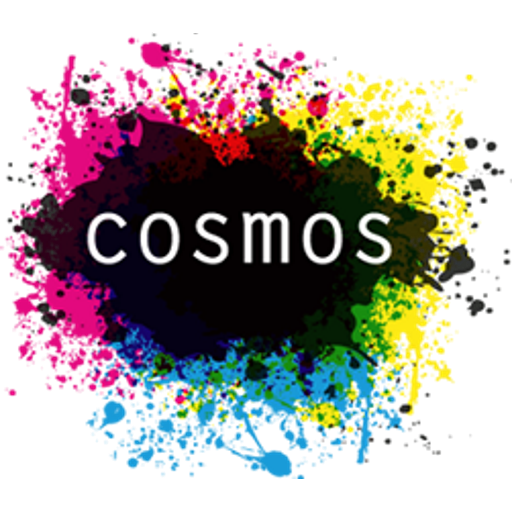International Conference
14-15 November 2024
Anastasia Barone, Giada Bonu Rosenkranz and Donatella della Porta (Scuola Normale Superiore)

Feminism as a method
Feminist Epistemologies, Methodologies and Methods in Social Sciences
International Conference
Faculty of Political and Social Sciences
Scuola Normale Superiore
Palazzo Strozzi, Florence
14-15 November 2024
Over the past decade, feminist epistemology and the feminist perspective on methodologies has been the focus of renewed interest, also due to the new wave of mobilizations at the global level against gender based violence and inequality. In a famous speech, Katie Sarachild (1979) argued that the practice of self consciousness rising, widespread in civil rights movements and later in second-wave feminist movements, was the research method developed by women to analyze society from their own embodied experience. For her, feminism was thus based on the intertwining of epistemology and methodology. In 1987 Sandra Harding asked, “Is there a feminist method?”. Since then, the pioneering works of feminist researchers such as Evelyn Fox Keller (1983, 1985), Donna Haraway (1988), Sandra Harding (1987, 1992), Adrienne Rich (1984), Patricia Hill Collins (1986), to mention a few, feminist epistemologies have been questioning the universality and neutrality of scientific and social research by providing a critical and situated approach, based on self-reflexivity, positionality and the critics to strong objectivity. The rise and development of critical methodological approaches in the social sciences—sociology, political science, philosophy, science, and many other fields—has been greatly impacted by these approaches.
Feminist epistemologies and methodologies represent a critical approach to knowledge production, emphasizing the examination of gendered perspectives and power dynamics in the construction of knowledge. These frameworks challenge traditional, often male-centric, ways of understanding reality and seek to uncover hidden biases and inequalities in various disciplines. By foregrounding women’s experiences and voices, feminist epistemologies aim to create a more inclusive and equitable knowledge base. Methodologically, these approaches often prioritize participatory research (Fuster Morell 2009, Schurr & Segebart 2012, Sallah 2014), intersectional analyses (Crenshaw 1991; Hancock 2016), and collaborative interventions that acknowledge the diverse ways in which gender intersects with other social categories (Cook and Fonow 1986, Reinharz 1992, Malo 2001, Lykke 2010). Feminist epistemologies and methodologies strive to reshape the intellectual landscape by fostering a more comprehensive and just understanding of the world.
The international conference “Feminism as a method” aims at exploring the contribution of feminist theories and approaches, from an intersectional perspective, to epistemology, methodology and methods in social sciences. It is intended to bring together scholars from different disciplines and areas of research: social movement studies, sociology, anthropology, history, political science, geography, political ecology, cultural studies, science and technology, philosophy and art. The aim of the conference is to collect and gather existing knowledge, skills and expertises on epistemology, methodology and methods from a feminist and gendered perspective.
Special attention will be given to the following themes:
We invite scholars to present both theoretical and empirical papers on such themes.
Please send an abstract (500 words) and a short bio (100 words) to the email address anastasia.barone@sns.it and giada.bonu@sns.it by May 31st, 2024.
Acceptance will be notified by July 31st, 2024.
Selected contributors will be asked to send the paper by October 1st, 2024.
The conference will take place in person at the Faculty of Political and Social Sciences of the Scuola Normale Superiore, located at Palazzo Strozzi, Florence.
References
Collins, P. H. (1986). Learning from the Outsider Within: The Sociological Significance of Black Feminist Thought. Social Problems, 33(6), S14–S32. https://doi.org/10.2307/800672
Cook, J. A., & Fonow, M. M. (1986). Knowledge and women’s interests: Issues of epistemology and methodology in feminist sociological research. Sociological Inquiry, 56(1): 2-29.
Crenshaw, K. (1991) Mapping the Margins: Intersectionality, Identity Politics, and Violence against Women of Color, in Stanford law review, 43(6), pp. 1241-1299.
Fox Keller, E. (1983) A feeling for the organism. The life and work of Barbara McClintock. W.H. Freeman and Company.
Fox Keller, E. (1985) Reflections on Gender and Science. Yale University Press.
Fuster Morell, M. (2009) Action Research: Mapping the Nexus of Research and Political Action, Interface, 1 (1), 21-45.
Haraway, D. (1988) Situated Knowledge: The Science Question in Feminism and the Privilege of Partial Perspective. Feminist Studies, 14 (3), 575:599.
Harding, S. G. (Ed.). (1987). Feminism and methodology: Social science issues. Indiana University Press.
Harding, S. (1992). Rethinking Standpoint Epistemology: What Is “Strong Objectivity?”. The Centennial Review, 36(3), 437-470.
Lykke, N. (2010). Feminist Studies: A Guide to Intersectional Theory, Methodology and Writing. New York: Routledge.
Malo, M. (2001). Nociones comunes: Experiencias y ensayos entre investigación y militancia. Madrid: Traficantes de sueños.
Reinharz S. (1992). Feminist Methods in Social Research. Oxford: Oxford University Press.
Rich, A. (1984). Notes toward a Politics of Location. In: Rich, A. (1984) Blood, Bread and Poetry: Selected Prose 1979-1985. W. W. Norton & Company, New York.
Sallah, M. (2014). Participatory action research with ‘minority communities’ and the complexities of emancipatory tensions: intersectionality and cultural affinity. Research in Comparative and International Education, 9 (4), 402-411.
Sarachild, K. (1979). Consciousness raising: a radical weapon. In: Redstockings (1979) Feminist Revolution. Random House.
Schurr, C., & Segebart, D. (2012). Engaging with feminist postcolonial concerns through participatory action research and intersectionality. (3), pp. 147-154. Helvetica, 67 Geographica.
Wuest, J. (1995). Feminist grounded theory: An exploration of the congruency and tensions between two traditions in knowledge discovery. Qualitative health research, 5(1), 125-137.
28/10/2025

Journal Article - 2025
Journal Article - 2023
Journal Article - 2023
Journal Article - 2023
Journal Article - 2023
Monograph - 2023
Monograph - 2022
Monograph - 2022
Journal Article - 2021
Journal Article - 2021